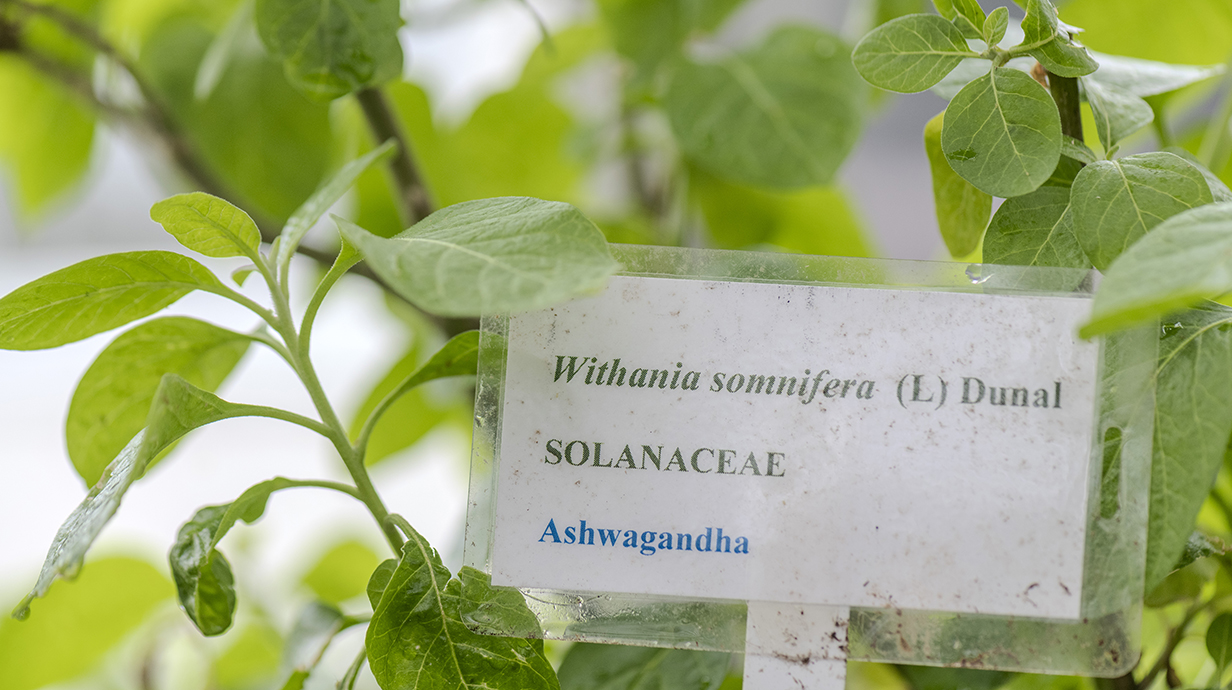Researchers Review Reasoning for Nordic Ashwagandha Ban
UM pharmaceutical scientists find questionable scientific backing for Denmark's action

OXFORD, Miss. – Two University of Mississippi researchers are seeking to find out why three Nordic countries are attempting to ban ashwagandha.
People have used ashwagandha as a natural remedy for more than 3,000 years to treat many ailments. Yet, Denmark banned it in 2023, and Sweden and Finland are considering following suit.
In a recent study published in the Journal of Ethnopharmacology, Ole Miss researchers Ikhlas Khan and Amar Chittiboyina reviewed the science – good and bad – around the medicinal herb and found that questionable science could have caused Denmark's move.

"What do we know about ashwagandha?" said Khan, director of the university's National Center for Natural Products Research. "Is this decision based on good science or not? We want to give an unbiased answer.
"When these kinds of decisions are made, they should be on solid science. We did not see solid evidence to come up with a decision that would ban ashwagandha. There is not much scientific evidence to prove that it is a dangerous thing."
Ashwagandha, which is native to India, has long been used as an aphrodisiac, diuretic, de-wormer and cognitive enhancer that can aid in memory loss prevention. Recent studies have indicated that the plant's extracts could also serve as an anti-inflammatory agent, stress reliever and fertility booster.
The use of the plant's root and extracts in supplements has boomed in the last decade, and they are sold online and in many health food stores. The annual market value of ashwagandha was $864.3 million in 2023 and is expected to grow to $2.5 billion by 2031.
But a 2020 study conducted by Technical University of Denmark suggested the herb could induce abortions and disrupt functions of sex hormones and the thyroid. That publication led to the country's decision to ban ashwagandha.
This research, however, has come under fire since its publication, with many saying the researchers did not accurately account for a variety of factors.

"What we're trying to do is separate the good science from the questionable science," said Chittiboyina, the Ole Miss center's assistant director. "Some might say, 'Well, who are you to judge?' The NCNPR has a strong track record of in-depth scientific expertise, lending credibility to their work in botanical dietary supplement research."
Part of the problem is that the traditional use of ashwagandha varies from the extracts and dietary supplements used today, the researchers said.
The roots, flowers, fruit and leaves have different purposes in traditional natural medicine and are commonly prepared with other herbs, Chittiboyina said. That varies from capsules, tablets and liquids sold in health food stores.
"The way ashwagandha was used in India and the way it is consumed today in Western culture is vastly different," Chittiboyina said. "When we're testing products, are we testing the root? The leaves? What parts of the plants are being used and in what way for these supplements?
"Understanding these parameters enhances scientific reproducibility of such ingredients – whether it is quality, efficacy or safety."
Khan agreed with that assessment.
"It's very difficult to correlate traditional use from what is being sold," he said. "The question here is, 'Is this science reproducible? Is it relevant?' These are the things we are looking for."
In the meantime, people interested in using ashwagandha should use the same precautions with that herb as with any other dietary supplement, the researchers said.
"Ask yourself what it is you want, what the product is, what the product will do, and talk to your physician before consuming," Khan said.
"The bottom line is to be educated on what you put in your body."
By
Clara Turnage
Campus
Published
April 17, 2024
